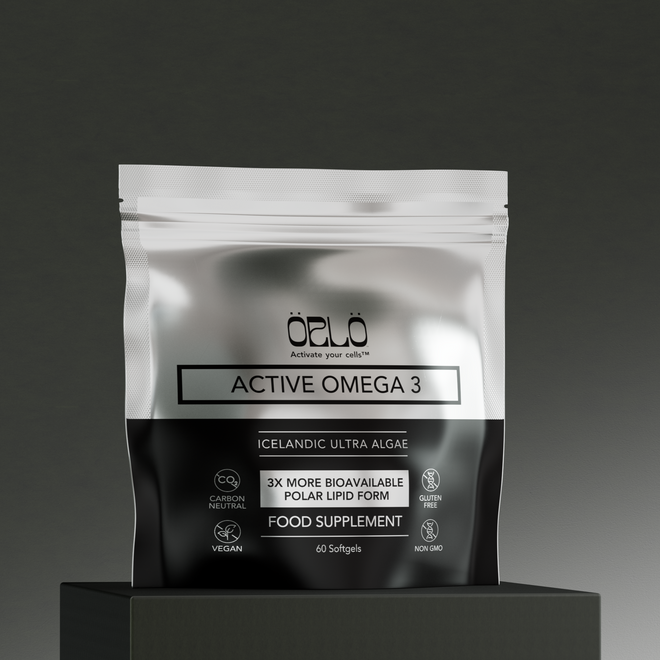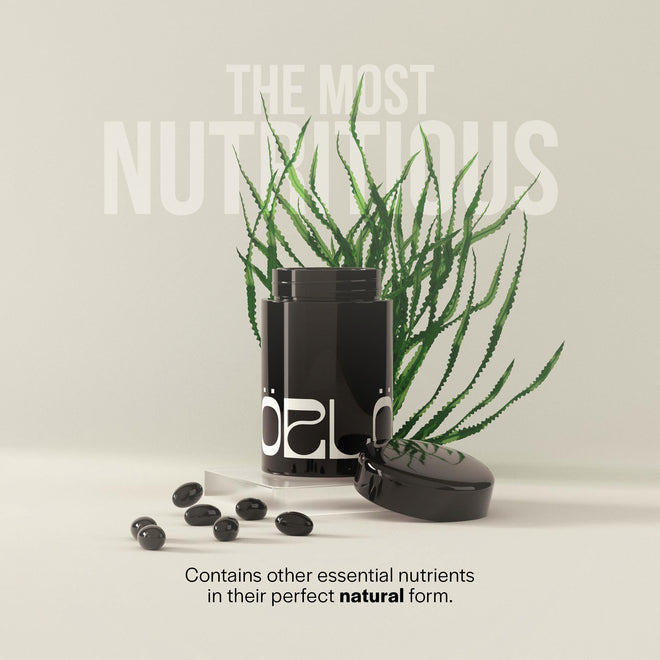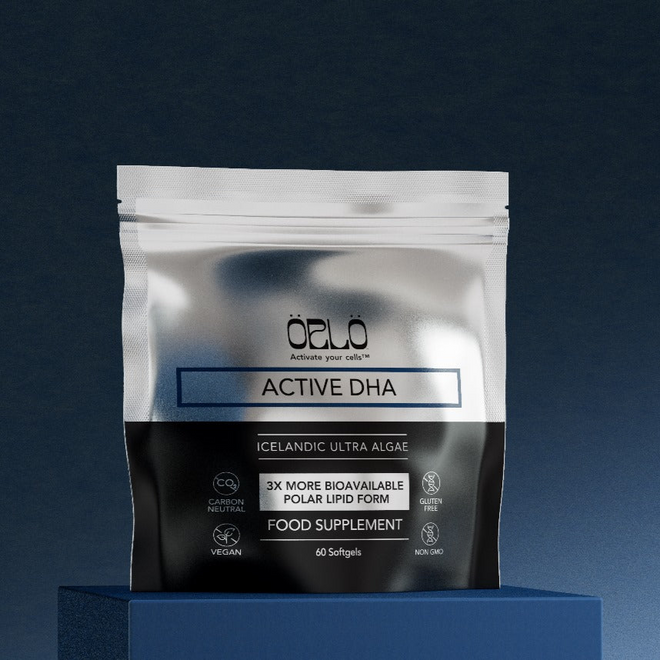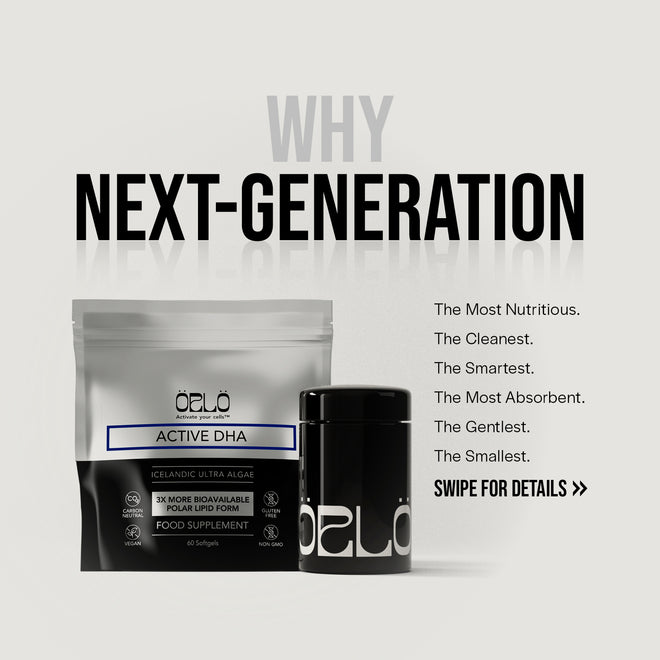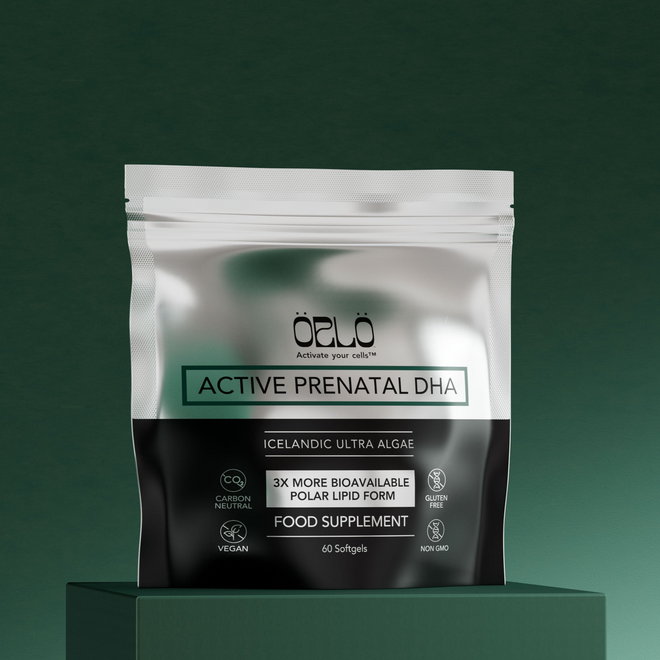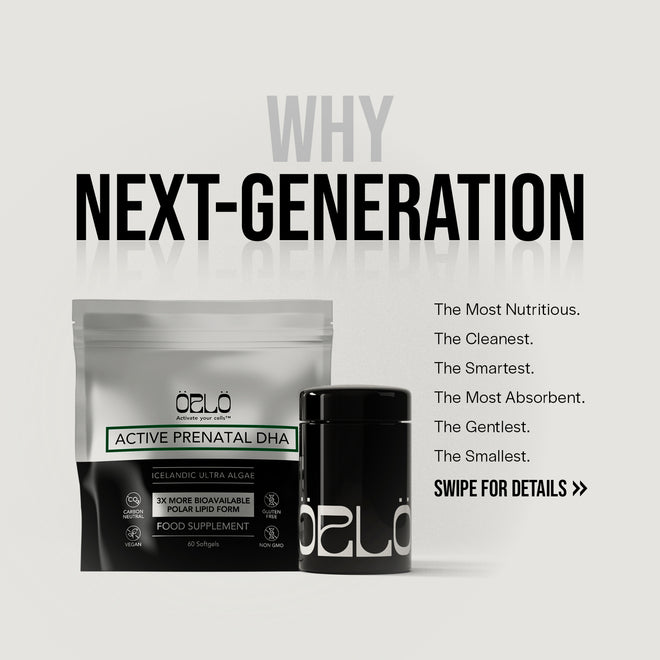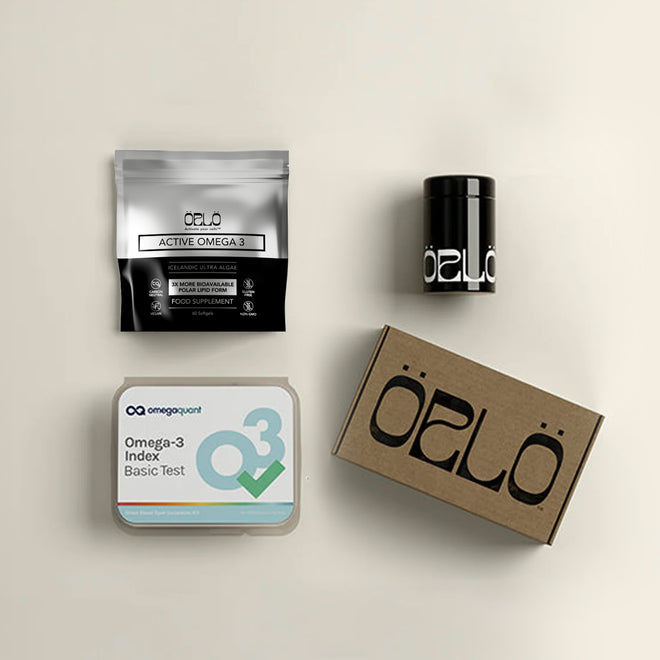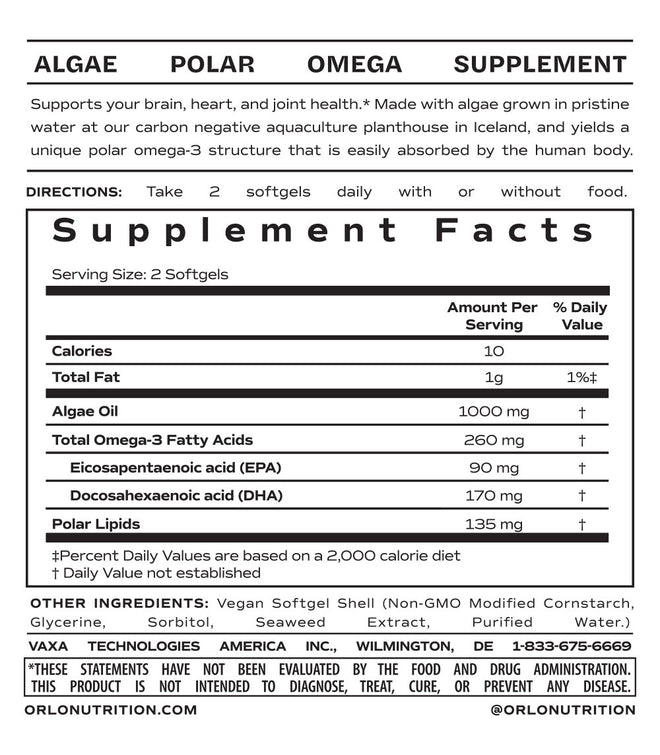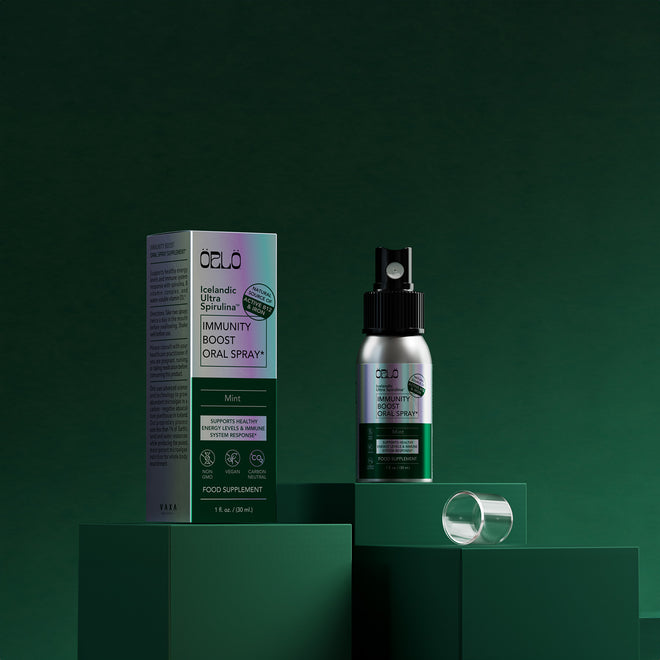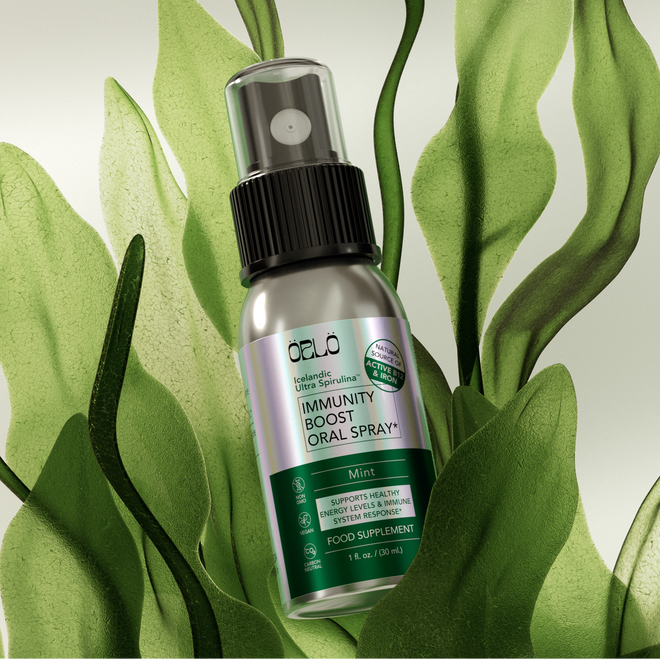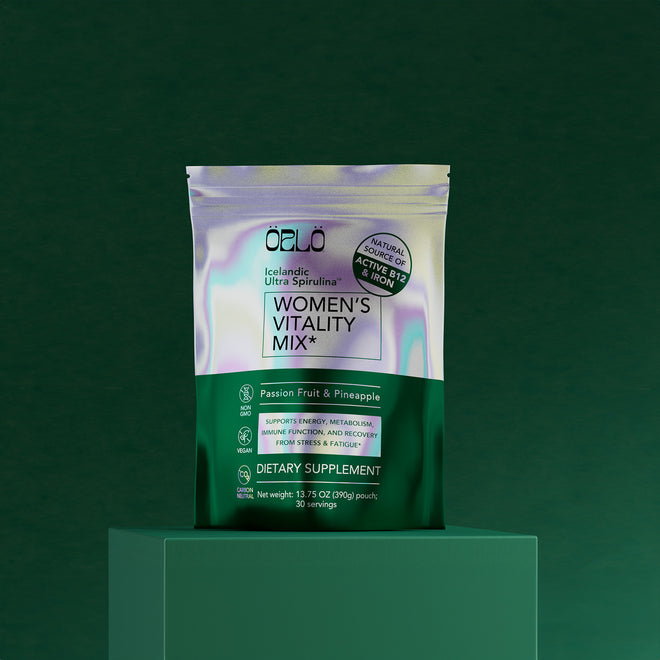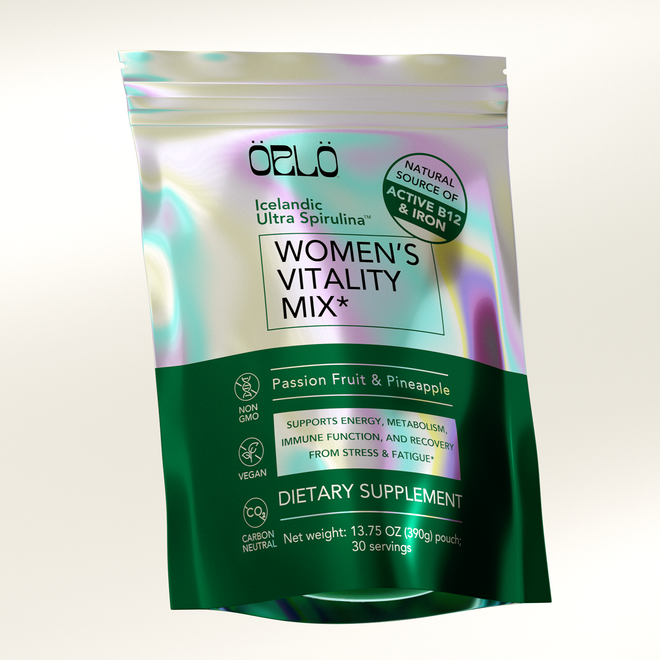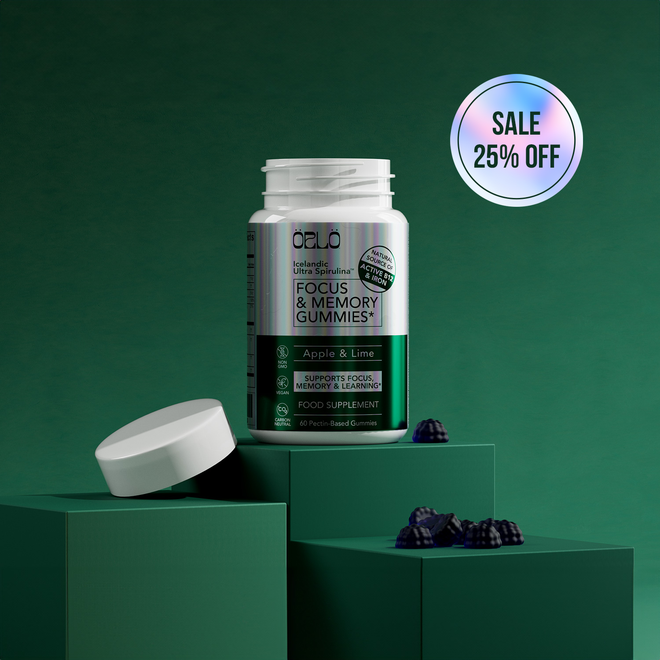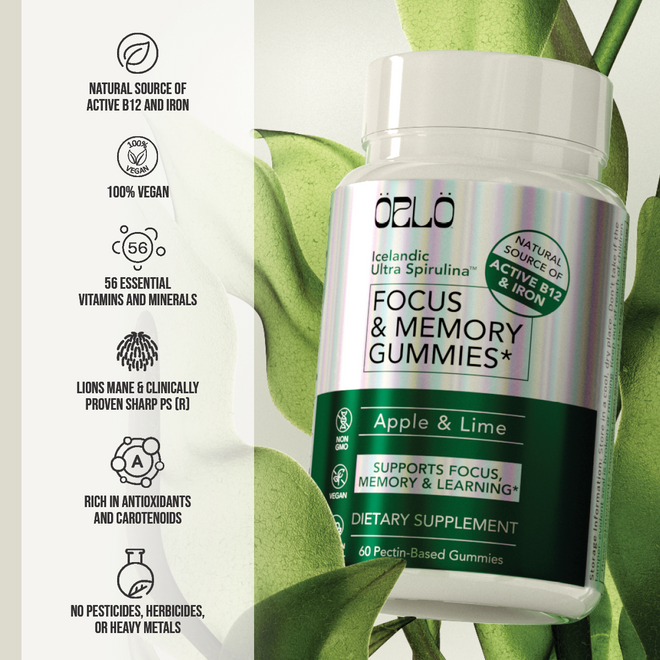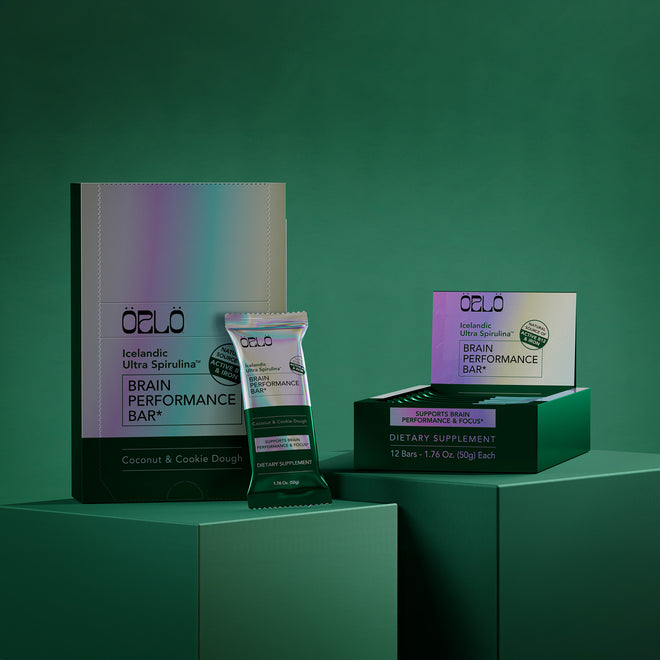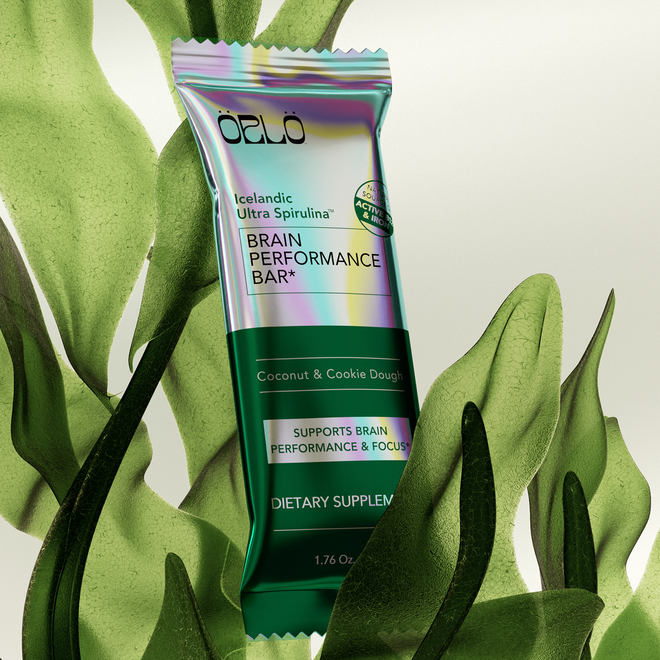Free shipping on purchases over $69
FOREVER YOUNG: Ep 468 Algae-based Omega 3’s vs. traditional fish-based products.
Guest: Corinna Bellizzi
Corinna Bellizzi, MBA is a natural products industry executive and omega-3 expert who successfully creates new nutrition categories, pioneers brands, and develops educational strategies that disrupt markets. Given her concern for the future health of people and planet, Corinna shifted her omega-3 career from a focus on fish to algae in 2016. With a team of experts, she led the development of Orlo Nutrition, a new brand by VAXA Technologies, Inc.
As an avid podcaster, she started her second podcast, Nutrition Without Compromise, to lean into the simple truth that great nutrition and bountiful health are a human right.
Listener Appreciation Gift
Get an exclusive 20% discount at Orlonutrition.com when using the code FOREVER at checkout. Will not work on subscriptions.
Follow the Conversation
Kelly Cappasola: Over the past two decades, we have had the opportunity to serve and help so many listeners. We do that by bringing on respected educators in all fields of health and wellness. We pride ourselves on keeping consumers in the know about our ever changing healthcare system and ways to support the body.
Each week with the help of our special guests and experts, we have one goal in mind, and that's to ensure every listener has the most up to date information on ways to support all aspects of health. Now, here's your host.
Hello everyone. So glad you could join us today, right here on the Forever Young radio show.
If it's the first time you've caught us, whether it's on the traditional radio dial, Sirius XM, or any of our wonderful podcast platforms, thank you for listening and welcome to the program. We've been here well over 25 years and we show up each and every week with the same kind of mission in mind, and that's to inform and educate every listener on healthier lifestyle options and good quality science.
Based information. If you'd like to learn more about us, it's very easy to do so. You can visit our website that is at forever young radio. com again, forever young radio. com. There we have goodness, a ton of podcasts. I think over 470, we have articles from A to Z raging on topics from all aspects of your health.
So again, great to have you with us. We have a wonderful show planned, have a really good return guest coming onto the program. She's been joining me for almost two decades on this show. Her name is Corinna Bellizzi, MBA, and she has been in the natural products industry and an Omega 3 expert for decades, and she has successfully created.
A new nutrition categories, pioneers, brands, and develops educational strategies that disrupt markets. I am going to skip her big bio because I like to talk to her and I don't want to wait anymore and I'll let her kind of tell you why she ended up where she is now. Corinna, thank you so much for joining me and welcome to the show.
Corinna Bellizzi: Hello again, Kelly. It’s so great to be here.
Kelly Cappasola: It's so nice to have you with me. I mean, over these years of us being on the show together and being educators, we have covered a lot of topics. And you know, I think it's very interesting. We talk so much about omega threes. It's so imperative within our bodies, our world, everything that we're kind of needing to, to get through and feel better and age properly and to have the brain power, even the ocular health to do what we need to do.
But it's interesting. I think when we think about Uh, Omega three is a lot of people, uh, think about fish and you actually started your career in the fish industry. Let's share a little bit with the listeners who maybe haven't heard of you before.
Corinna Bellizzi: I've been in the natural products industry since I essentially graduated college back in the nineties.
Oh my gosh. Right. So, I got my start formulating products and I was really interested in the omega 3 research that was out there, especially since the FDA started to really allow for qualified health claims around omega 3s as they relate to heart health, which is how most people know about omega 3s.
Like they're heart healthy. You'll even see that on packaging now for like milks that contain DHA, but the reality is that, um, I, I, I dove so heavily in. Simply because I saw how positive the impact could be when people started getting it up Omega 3s in their diet. We here in the United States don't consume very much fish.
And when we do, it's typically fried and battered and not, let's say the best quality. And because of that, and because of this Western lifestyle that we live within with, you know, fast foods and highly processed foods, our systems get so out of balance. And so, I was really inspired by The research and by all of the health benefits that I saw in people.
So I just, I kept kind of rolling. So for the first 10 years, I was really focused on fish. Well, cause that was the way that you could get omega 3s EPA and DHA. But then science really continued to go forward. We started to learn more about sources of omega 3s and the fact that. Fish actually get their EPA and DHA from the algae they consume.
So I made a full scale pivot to working in the algae technology, which has been where I've spent the last, you know, since 2015 about.
Kelly Cappasola: I'm glad you did because it's been wonderful to be able to, to learn more about it. And we're going to focus on that today throughout the show. But Karina, another great way that you You educate people and you're out there in the world is you are an avid podcaster.
Tell us a little bit. You have two great podcast platforms that you put out there in the world. Let the listeners know so they can maybe check them out for themselves.
Corinna Bellizzi: I got my start podcasting with my personal show, which is called Care More, Be Better. It's all about everything, social impact and sustainability.
So I'd really try to educate people on the things that we should perhaps care a little bit more about so that we can create a better future for all people and for planet. And so that kind of marries with my world in the nutrition space as I connect with the other podcast I host, which is called nutrition without compromise.
And the entire ethos of that show is that we're putting forth nutrition and health. Um, without sacrificing your morals, your ethics or the health of planet earth, right? This beautiful globe that we live on. And so, um, I get to interface with some incredible researchers and doctors and some cases, brands that are doing everything right to, to, as I work to educate the audience, not only on how great Omega threes are for you, but for other areas of health as well.
And, um, it really just enables me to. Spend that time and energy doing something I'm passionate about, which is making sure that people get the right health information so that they can better manage their own health every day.
Kelly Cappasola: Yeah, it's awesome. And again, I love that you always look at people and planet.
Uh, I know we're going to have a great show today. You're going to share with us some different things just in, you know, understanding what it's like. like to source and get an algae form of omega three, what we're up against when we go out to dinner and maybe order some sushi, or we go to the grocery store and maybe buy a Franken fish and, and what to maybe look for and what to avoid.
So make sure you stick with us. You can learn more about Karina on our weekly. Lee highlight page at forever young radio. com. You can link directly over to her podcast and really like, see what she's done. She works really hard, brings on some really great people onto her show. Like she mentioned, whether it be doctors, scientists, or people who just want to do things for the greater good stick with us, we'll be right back after the break.
Give your heart health and your immune system a boost with omega threes and spirulina from the world's most sustainable grower in the world. Orlo Nutrition. Orlo grows algae in pure, sustainable abundance in their first of its kind aquaculture plant house in Iceland. Their products are more bioavailable.
This means you get all the benefits without fishy burps or nasty aftertaste. Orlo Nutrition's unique polar omega structure boasts three times the amount of absorption over fish or other algae oils. Orlo is the future of nutrition omega threes and immune boosting micronutrients that provide all the benefits without damaging earth's ecosystems.
So people and planet can thrive. Visit orlonutrition.com today. That's O R L O nutrition.com. Get an exclusive 20% discount@oronutrition.com when using the code forever at checkout or low nutrition because nutrition shouldn't be an either or. That's O R L O nutrition.com.
Kelly Cappasola: Welcome back listeners again. Thank you so much for joining us right here on forever young If you get lost along the way, make sure you check us out at forever young radio. com We archive all the shows there and we make sure that we leave the weekly highlight page up for at least a week Again, being joined by good friend of the show, Corinna Bellizzi, MBA, Corinna, again, thank you for joining me.
Corinna Bellizzi: Oh, thank you so much for having me.
Kelly Cappasola: I remember when we probably got into this game all those years ago, and we would hear things like, let food be your medicine, let medicine be your food. And you know, we, everything was kind of prescribed in that way back in the day. And supplementation, which is fantastic, pharmaceutical, if they have to.
But, you know, as much as we talk about food, I don't think that the source of the food is talked about very often. What would you say, Corinna? Like how important is the source of the food that we're eating?
Corinna Bellizzi: Well, is there anything more important? I, um, I just went to this, symposium this weekend called the soil and health forum.
And there was this particular individual who spoke, his name's Brock Dolman, and he's working to restore ecosystems in California by reintroducing the beaver into wild habitats and allowing the beaver to succeed. And he said so eloquently, because we are what we don't. Essentially poop. Right?
You are the things that you consume that are not then eliminated as waste. And so if we're putting bad food into our body, if we're eating, if we're consuming foods that are full of glyphosate and that are full of other contaminants, then that's what gets into our systems. It can gunk things up.
We don't know how long it takes to do things like get rid of glyphosate that you got from eating your Wheaties and Cheerios in the morning. We really. Don't know how long it's going to take to eliminate these toxic things from our systems. And so the best thing we can do is start today, eat more cleanly and be more responsible for the sources of food that we eat.
We should be eating organic whole foods. We should eat less processed foods, probably less grains, and we should also focus on getting healthy. Lean meats. If we are meat eaters, and if not, that we're getting enough protein in our daily diet. And one of the foods that is considered so healthy is of course, fish, right?
So people say, okay, I'm going to go and I'm going to get fish for my plate because I want to get my Omega threes and Omega threes are so healthy for me, but they don't know about that source. And the thing that we learn is that fish that is farmed is actually exposed to a lot of toxins that the public doesn't know about.
And they're essentially bathed in antibiotic fluids and pesticides to get the things that are growing on them off. Most of what is offered at the grocery stores now is farmed. And if it doesn't say farmed, it is. So You know, the source of what we've considered healthy food for a long time is actually not as healthy as it once was.
So we need to think about that protein source and we also need to think about doing things like getting enough of those right core nutrients, like the essential fatty acids. And if we're not going to fish, then we need to be taking a supplement. Then we also need to look at things like fiber. Are we getting enough fiber?
Are we getting enough of these innate prebiotic fibers that are present in fruits and vegetables? And if we're not eating enough of those fresh fruits and vegetables, we aren't getting enough of those things. So looking at what we consume, how we consume, how we prepare our food, all of that is absolutely a vital importance to our long term health and longevity.
Kelly Cappasola: Yeah, that's a really great point. And, you know, I think about consumers out there and, you know, they'll be like, oh, great. I heard you have to eat more fish. I'm going to go get some tilapia. That should be great for my omega 3s. I mean, lowest amount of omega 3s in most fishes out there, or most fish out there, if anybody ever wondered.
But I also think consumers get bamboozled a little bit. Uh, I think with dietary supplements, we have DSHEA (Dietary Supplements Health & Education Act of 1994). We're up against really saying what's in that product, what's included. Uh, I wish there was more of that when it came to food, because that we eat with our eyes first. And then we kinda, you know, it starts this whole digestive process of enzymes in our mouth, getting the stomach ready.
So when we're at a store and we see the salmon, that's so orange color and so bright, I don't think a lot of consumers know that sometimes those are often died.
Corinna Bellizzi: Yeah, they actually do add colorants to the flesh of the fish. Sometimes you'll see that on a sticker right on the outer packaging, but it's not something that's always that prevalent or easy to see.
You really have to get into being a label reader. And if something says Atlantic salmon, or if it says Norwegian salmon, these are two indicators that it is actually farmed. Those are species of fish. They are not indications that it's wild. So unless it says wild, it's not. And when you dine out at restaurants, if you ask the server, if it's wild and it doesn't say so on the menu and they say, yes, they're probably lying just to sell you the salmon.
So we need to think about those things too. Like how do we act when we eat out?
Kelly Cappasola: And I mean, that's a great point. I think it really gets people's mind thinking about, okay, what am I going to consume? What am I going to put in my body? You know, another thing that has always been a passion for you, Karina, is the health of not only the planet, but the health of the ocean.
I mean, you live so close up there to Monterey. Uh, I think you wanted to go into biology initially in your younger years. I'm not sure I'll ask you about that after I, you know, we get through this, but even the conversation that you recently had of just like, even people in Norway talking about, okay, the health of our ocean, the health of our fish, sourcing of our food, because it's been overly fished, it can change the environment… Very drastically.
Corinna Bellizzi: Yeah. And that's something that's really unfortunate. I recently interviewed Simon Saetra who wrote this book called The New Fish, which is all about salmon farming practices in Norway. And he shared on that show that while there is still some wild salmon in the rivers, you might be able to fill two of the sea-net pens that are floating around the coast of Norway with the wild fish populations.
And yet there are thousands of farm fish sea-net pens. He actually shared that he doesn't believe he's ever consumed wild salmon in his life. This is someone who's in their thirties living in Norway that whole time. So it's very shocking to me to hear that. I mean, I realize that fishing is so absolutely endemic to the culture of Scandinavians.
And for a Scandinavian to say that they have lived through 30+ years and never had wild salmon in particular, while living in Norway. It's just tragic. So we've gotten to a point where the fish populations that we do farm, they escape, they interbreed with the wild populations. They make them weaker essentially.
Right. But they also are emitting a lot of waste and a lot of chemicals into those waters in order to, deal with the sea lice that are present on the fish. Those chemicals are dangerous. They're not healthy for us. There was even a study that showed that consuming farm-raised salmon was linked to cancer.
And so that is detailed as well in that book, The New Fish by Simon Saetra and Kjetil Osli. It's out by Patagonia Press as of this summer. And if you really want to dive into that topic, I encourage you to pick it up and read it. Or you could also just go listen to that Care More Be Better episode.
Kelly Cappasola: Absolutely. And, you know, that's one of the things, Corinna, that, again, we want people, we know the benefits. We want people to figure out, you know, this omega 3 imbalance that they're having. You know, we've talked about so often the omega 3 to omega 6 imbalance that people are dealing with. And look, people are like, Hey, I'm just trying to do the best.
I got. Two kids. I got a grandkid. I got to go to work every day. I'm trying to do better. I'm trying to eat right. Um, but again, I think this is what leads people down the road of supplementation and there's problems with that as well. I mean, you may have a great algae form Omega and you may have one that's not so great.
Same with fish oil. So I think what you alluded to reading label Corinna is just so imperative to this conversation and everything else that we're going to talk
Corinna Bellizzi: Absolutely. And, you know, really looking for products that Have all the hallmarks. I mean, in the case of Orlo Nutrition, you're working with the creme de la creme of algae oils because we control every input that there really is, right?
We're growing the algae in a contained environment. So we're sure that we're not having to use anything like pesticides, right? So we're not using any of those chemicals. We're able to grow it an exponential rate because of the fact that it is in this controlled environment using only green energy. Okay.
from a geothermal plant. Um, and ultimately the algae, because it's grown in such a pristine and careful environment that's optimized with technology, we don't have to process it as much. And so that means that we're able to retain our polar lipid structure, which means that the omega threes EPA and DHA that are contained within are three times better absorbed than fish oil.
So you get a lot of things from that. You don't have the burp back. You can take a smaller pill. You can get maximum benefit even if you have a system that doesn't integrate the omegas as well. And so you'll get a hundred percent of the benefit without any of the negative issues that you would see from, from fish.
Kelly Cappasola: Yeah. I think just the burp back alone, people are like, yes, because like so often it's like repeat. odor free. Not true. Uh, I mean, some people just have a really hard time processing that. And depending what kind of flavorant was put in there, they could potentially have some kind of an issue with that.
I'll tell you that I've been on, goodness, how long have I been on it now? The Orlo. I mean, I say over six months. Yeah. And yeah, and I go back and forth, you know, I may do like just the EPA and the DHA, or I may just do the DHA if I'm under a tremendous amount of stress. So there's a lot of great conversation.
I feel like there's more versatility, uh, where I can really dial it in and focus on what I really want to focus on, especially like you said, Corinna, with all the toxicity out there in the world. I mean, We come up against 10,000 toxic chemicals. And that's just according to what one group said. I mean, that's environmental working group.
Imagine like the ones that haven't been discovered. So again, we need to make sure that we're putting in proper things to our body, but I want you to go to this website, uh, while we're over this next commercial break, that is Orlo Nutrition. com it's O R L O nutrition. com. Wonderful blogs, wonderful content on that site.
And just learn a little bit more about what a great. company is doing out there in the world like Orlo
Unfocused lately? You might be deficient in DHA, an essential omega 3. DHA makes up half the fat in your brain and eyes. And without it, entire health systems crumble. Thankfully, there's an easy solution.
Orlo Nutrition provides active omega 3s in the polar lipid form. For up to three times better absorption than fish oil, you'll get all the benefits of the Omega 3's EPA and DHA in a smaller pill. Without that fishy burp, these active omegas get straight to work, supporting your healthy focus, attention, vision, and so much more.
Orlo is the future of nutrition. Algae based Omega 3s and nutrition solutions that are better absorbed for better efficacy and that are better for the planet. Visit OrloNutrition. com today. That's O R L O Nutrition. com. Listeners of Forever Young qualify for an exclusive 20 percent discount at OrloNutrition.
com. Just use the code FOREVER at checkout. Orlo Nutrition, because nutrition shouldn't be an either or.
Kelly Cappasola: Welcome back listeners, again having a wonderful conversation with good friend Corinna Bellizzi of Orlo Nutrition. Really sharing with you what's going on when we're talking about Omega 3s and the processing of fish in the marketplace. Maybe the differences of things that we're trying to buy as consumers when we're sourcing our food in a grocery store very differently than our ancestors once did.
And again, Corinna, thank you so much for joining me today to do a lot of this heavy lifting.
Corinna Bellizzi: That's my jam, Kelly. Thank you.
Kelly Cappasola: I know. I love it. Uh, you know, and so before we went to the break, we were kind of just talking about, you know, the differences. And, um, one of the things that I've seen you put out there, Corinna, which I love this, and I think it really resonates with even the listeners of the show is skip the middle fish.
If you skip the middle fish, are you still going to get Omega threes? Tell us a little bit how that algae to Omega. free versus fish kind of works out in traditional products out there in the marketplace or even when it comes to the food source.
Corinna Bellizzi: Kelly, this is one of my favorite questions because I can't tell you how many times I even have nutritionists come at me and say, Oh, but algae doesn't provide the same kind of omegas as fish does.
And I say, wait, wait, wait, what, what, where are we here? What planet are we living on right now? Because the fish literally are getting their omega 3 EPA and DHA from the algae they consume. And so it's not that the algae is less bioavailable and then. It's that they're equivalent. It's not like you're comparing flax oil to fish.
And it's like they somehow got that confused in their minds. When you're talking about terrestrial plant sourced omega 3s like walnuts, chia seeds, you know, all these other things, including flax oil. You're basically taking something that's a precursor to the omega 3s, EPA and DHA. But when you go to algae or fish oil, you're getting a direct source of EPA and DHA.
So your body doesn't have to go through that hard work and you can get all of the benefit for cardiovascular health and for brain health from the omega 3s. But then we also have the ability to get those omega 3s in one of three forms. an ethyl ester, which is a super highly processed oil, a triglyceride, which is a standard fish oil, and even a polar lipid.
Polar lipids are a little harder to make because of the fact that they're just a little more fragile. You can't process them the same way to eliminate toxins. So you can't make that necessarily from a fish oil. And we can do it with our algae because of the fact that we've managed that bioavailable.
You don't have that. burp back, you don't have that negative response, but even in the world of algae oil, that's hard to do. We've been able to do that. So we are able to produce something that can really have a strong effect without that negative impact of a burp back. And this enables us both to skip the middle fish and to ensure that you can create a smaller pill that will easily be consumed by somebody from the ages of as young as five or six. I train my kids to take our soft gels when they were that age and just, you know, they do it easily with a cup of water, no big deal. And so you can consume them from age six to 106, no problem. That's the feedback that we get from our customers too.
Kelly Cappasola: Yeah. I mean, that's such a big difference because generally like an omega three fish source pill, it is the size of like two to three. sizes of what, like a vitamin E would be, uh, depending on which one you're getting out there, especially if you're just going and buying one run of the mill at Costco. Uh, and again, remember, we're looking at taking this to kind of squelch and manage the inflammatory load that our body is dealing with.
If you were to take an inferior oil and it had rancidity in it, it does the complete opposite effect of what you're hoping for it to do. Is that kind of something you've learned along the way, Corinna? Yeah,
Corinna Bellizzi: absolutely. So with Omega 3s, what you're really trying to do is to battle the out of control inflammation that your body's exposed to.
When you get enough Omega DHA, it acts like a calming effect. It gets everything back to homeostasis and balance. And so that's the goal. That's what you're working to do. When you have consumed a rancid oil, that's when you're going to get. A lot of burping. You might even experience digestive distress. My husband would go straight to the toilet just as an example, right?
And this means it's actually causing inflammation in the body. Now it might still be displacing some less healthy fats, but it's not in its best form and rancid oils are just not good for you. So You know, you're basically paying for expensive excrement at that point.
Kelly Cappasola: Yeah. Very expensive. And you know, gagging it down while you're doing it.
Corinna Bellizzi: So you know, you get that smell every time you open the bottle, you get a waft of fish. It's not a lovely experience. So I think we've all seen that, you know, you go to buy a 360 soft gel bottle at Costco or something like that. And I'm like, you know, I would not do that. And what are they charging for it?
Like 20 bucks. Come on. You can't produce that product for that. Not well, anyway. And so there is a big difference between how companies are making products on that mass, mass scale and how companies that are thoughtfully architecting their product, you know, do it. And really what we're doing here at Orlo is, is very different.
Because not only are we encapsulating in these small soft gels, a more bioavailable product, we're putting it into a beautiful glass bottle, which is your on violet glass. This is a refillable bottle that ships with your starter kit and you get the product each month. You can just go ahead and take your soft gels and fill them in.
It's pristine. It keeps the product super fresh. It blocks out visible light. And so you aren't getting light damage. It is airtight. So you're not getting air damage and it can safely be left on your bathroom counter or by your nightstand where you will remember to take it because you can't benefit from something that you don't remember to take.
And this is one of those hurdles that we've been working to get over because it's one of those key pieces to any supplement. If you don't take Omega threes with consistency, you're not going to see. the same benefit. And if you do take them with consistency, then you're going to see things like, Oh gosh, my dry eye complaints are no longer something I'm thinking about every day when I wake up in the morning.
Or, you know, gee, I just feel like I have better recall. I haven't misplaced my keys in a week. I mean, these are things that we can relate to. I can remember those moments where I come into the house looking for my sunglasses and my son points at my head and laughs. Right. Like on top of my head, those are the types of things that I do when I forget to take my Omega threes.
And so, you know, this is someone who as an Omega three evangelist even has these moments. I'm like, Oh, why, why is that happening? Hmm. Oh, I forgot to take my Omega threes for the last four days. So getting into the daily habit is key and, and this is one of the things I'm super proud of with Orlo because we have now launched this whole Tested by You campaign where if people come on and subscribe, we're going to give them a test to prove where their present levels are of omega 3s before they start supplementing.
This is a simple blood spot test. They send it in, third party data, they're going to see how they're doing. And then after four months of supplementation, they get another test. That they can send in and see how they did. And as long as they've been taking that product every day with consistency, they're going to see positive movement.
A lot of people who haven't supplemented before with omegas, they're generally around three to 4 percent omega 3s saturated in their tissues. And we all need to be at 8 percent plus, so this product can help them get there. We can help them remember to take it every day. Cause it's a beautiful glass bottle.
Kelly Cappasola: I've been using Omega three since the day I got into this game. We're talking many, many years. And, um, I'll tell you, I never really felt it. before until I started using the algae Omega form from Orlo nutrition. And I wonder, Corinna, and I know we're going to get into the testing more. Is that because of the polar lipid delivery system?
Because I notice and I get questions from listeners, Kelly, how come I have to take less of the Orlo products than I had to take when I was taking a fish form? Can you maybe just talk about that a little bit, Karina?
Corinna Bellizzi: Yeah, well, Kelly, when I worked in fish oil, I took so much of it that I definitely felt a difference.
But I was sitting there. You know, taking shots of cod liver oil to show people that it didn't have to taste terrible. Granted, you know, these are my early days and I'm thankful I don't have to do that anymore because I would end up at the end of the day looking a little greasy. Let's just say, you know, definitely when you consume too much, you also have some effects like oily skin.
Right. Yeah. I will just say that we have had so many different testimonials coming from people who tell me things like, Oh gosh, um, my house cleaner, who's a skeptic, right? She just sees me working at home. She sees the product. She's like, I'm asking me about it. Right. Yeah. And I'm like, okay, well, yeah, you know, the, these are the benefits.
If you want some, I'll be happy to set you up. Comes back to me the next time she's here. And she's like, so how am I supposed to be feeling? When I do this. And I love this question too, because it's what somebody asks when they've already noticed something. And I said, well, tell me how you're feeling. And she's like, well, I feel like my vision is sharper and I'm not having to wear my glasses at night anymore.
When I'm driving, I have classes for driving at night and I don't have to wear them anymore. And I feel like I'm just like waking up with a little more spring in my step. And this is the only supplement she's taking. I have another person who reaches out to me and said, um, I've been taking your product for the last couple of weeks.
My dry eye complaints went away after four days. I've tried fish oils numerous times in the past. They never did this for me. I feel like everyone in Arizona needs to know about this product. Great. Fantastic. Another friend who said they just started having very lucid dreams and are recalling moments of their childhood that they have since forgotten.
Wow. Are just feeling like their, their memories are more crisp. And I'm like, this makes sense. You're talking about half the fat in your brain and eyes are made up of these important fats. You're talking about the fact that the help with neurotransmission, they not only help to reduce inflammation system wide, right?
Like we're talking about between your brain to all of your cells in your body, your cardiovascular system, everything just works better. And so when we get to that point and we start to see with greater clarity, I mean, Yes. It's polar lipids. Yes. It's correcting your omega three deficiency. And yes, it's the fact that you're taking it with consistency.
Those three things come together and converge with this really happy, positive effect to your health.
Kelly Cappasola: Please go over to Orlo nutrition. com that's O R L O nutrition. com to learn more. Especially about the tested by you campaign stick with us. We'll be right back after the break.
Have you ever wondered whether you're getting enough Omega threes? At Orlo, we're so confident you'll see results with our better absorbed bioactive Omega threes. We're footing the bill to prove it with third party test results or lows tested by you. Limited edition program is a first of its kind initiative to help track your Omega three progress before and after supplementation.
Tested by you subscribers will receive two third party tests with their first six month subscription, an additional value worth 100. You'll receive one test with your first shipment to establish your pre or low baseline, and one after your fourth month to show improvement over time. Visit Orlo nutrition.
com that's O R L O nutrition. com and get your tested by you subscription today. While subscribers receive 15 percent off every day, listeners of this show will receive an exclusive discount with the code test FOREVER. All uppercase learn more at Orlo nutrition. com. That's O R L O nutrition. com.
Kelly Cappasola: Welcome back listeners. Again, thank you for joining us today, right here on forever young. Being joined by Corinna Bellizzi of Orlo Nutrition, teaching you all about the difference in products out there, whether it be a food grade product, whether it be a supplement when we're talking about omega 3s.
Obviously, we are kind of biased when it comes to our omega 3s. We prefer to use an algae based omega, and just like normal fish oil, all algaes are not created equally. Corinna, I have a follow up question from a segment ago. I want to ask you this before, uh, I totally forget, but if somebody is going to a box store and they're buying a 300 count, no omega 3 product, how many fish did it take?
to create that one bottle. Do you know anything about that? Do you have any stats?
Corinna Bellizzi: Oh, God, this is, this is the part that will really get under your skin. A lot of it depends on how many… what the size of the capsule is, but generally speaking, if you're looking at a one month supply. So let's take 60 of those soft gels, roughly, you're looking at well over a hundred fish.
These are sardines and anchovies, typically, sometimes it's mackerels, sometimes it's salmon. Um, you know, they will say things like, Oh, this was feeder fish. Well, what does feeder fish mean? I mean, they're feeder fish for the ocean. This is whale food. It's also sardines and anchovies, of course, are canned for human consumption.
But what they'll do is they just basically use the remnants of what's left over for fertilizer and things like that. Wow. Okay. Yeah. It's, it's a lot of fish. And so 300 count, you're probably talking, multiply that by six or seven up to a thousand fish, a thousand little fishies.
Kelly Cappasola: You know, I'm sorry that I asked…
Corinna Bellizzi: It’s so much, especially for any of our plant based friends out there who are just probably cringing as they hear about that because they say things like, I don't want to eat anything with a face.
And then, you know, you learn that it's also used for fertilizer, which is used to grow food. And you know, what do you do? It's like no one here is getting out alive.
Kelly Cappasola: Yeah, that is rough. And you know, you know, look, Corinna, we talk so often about knowing your numbers and you mentioned the Tested By You campaign that you're doing there at Orlo.
But I was wondering, you know, you said if we're at about an eight, we should be okay. Where did you kind of get that number? Can you share with us a little bit more about that?
Corinna Bellizzi: There’s so much research that has gone into the divination of this particular number. We know that people who have a saturation level of less than 4 percent are truly deficient in the omega three fatty acids, EPA and DHA.
If you're at six or seven, you're kind of right in the middle, not dealing with as many health risks. And then if you're eight and above. And that's like eight to 12 percent mostly, there's the very rare individual will test above 12 percent if you're eight and above, you have a 75 percent reduction in all cause mortality.
And this is something that was found through the multi generational study called Framingham, which was performed outside of Boston and actually followed people and their habits and their blood tests for multiple decades. And so the analysis is kind of an ongoing research study and we get new data all the time that looks back at that particular study.
You'll see new information coming out about vitamin D levels and other things like that too, because that analysis is there and they can go back to that research and then find out how healthy these people are living, even generations later.
Kelly Cappasola: I've known you a long time. So I'm going to know the answer before I even ask you this, but how did you talk the bosses at Orlo into doing the Tested By You campaign and essentially giving two free tests, uh, for the consumers when they sign up, because it's expensive.
Those tests are like 50 bucks a pop. And again, you're, you know, that's what we can't give an additional discount, but. How did, how'd you do some arm twisting on that one? Because it's, it's not only a really risky thing to do, but it's not cost effective for a company.
Corinna Bellizzi: Well, the company really looks at this as, the way that we convey to our customers, all of our potential customers, that we are willing to put our money where our mouth is. When it comes to the whole absorption story, we know that this is better than fish oil and we're able to stake this claim by saying, look, it will show up in your numbers now. If you have taken an omega three and you're starting out now with this product, your numbers might not move that much, but you would kind of expect that.
However, if you're coupling that with some lifestyle changes and you're also remembering to take it every day and you weren't before, you could see a pretty dramatic difference. Typically within a three month period, we'd see people come up by a couple of points. So if you're starting out at three or four, you might end up at six or seven.
In my case, I shifted to only taking our product and not consuming fish for a four month washout period. And then took a test to see how I did. Right? And just taking our product and not consuming any fish at all. I was at six and a half percent. And that was just as, you know, recommended on the label, two soft gels a day.
So I then made the choice to go ahead and increase my dosage to three soft gels a day. And from three soft gels a day, I was able to see it come up another full point. So this is without consuming fish at all. And you know, that is something that I'm proud of that I can see that I can get there. Ultimately, the story we're working to tell with people is that you can manage your health.
You can watch your lifestyle and impacts that come over that four month period. If you're also increasing your activity and also reducing your seed oil consumption, which competes with your omega 3s in your body, you're going to see an even more dramatic shift than you otherwise would. And so by getting people to think about their daily actions by getting people to take a baseline result and then one after four months, we can inspire them to continue taking the product and also to just make sure that they are really being the champions of their own health. Because while we're covering these first two tests from a mega quant, they retail for 50 bucks a pop, right?
They can go and take another test later. We even make them available on our site. If you just want to go ahead and buy it now for the same price you could find from OmegaQuant, you can do that. And this will enable you to get the results directly from them. You know, we don't manage that result. It's coming directly from them.
Send the blood spot card into them. You get the results and you can track your before and after. And even if you decide to take another test later, how are you doing then? And do you need to increase your dosage or could you take less? So you're making an informed decision. You're not just throwing your money away.
Kelly Cappasola: That's great. I really, really like that because it gives people an indication. They're not guessing anymore, you know, that's the importance of testing. And I can't say that there's many other companies out there that are actually doing this because, you know, it's just, they, they don't stand behind their product.
They're just out there to sell a product. They're not out there to build a culture. They're not out there to, you know, want to be a brand that's going to be around for, for years to be able to help these families. But I think it's important to, I mean, we have so many people who have a vegan lifestyle and I was reading one of these great articles that you put out and again, you can read the blog at orlonutrition.com and it had cited that recent studies have even shown 75 percent of vegans are deficient in omega 3, so as people are changing up their diets and maybe they're doing different things that, you know, they want to do within their own self, they need to understand those imbalances can happen and they can happen very quickly, you know, so again, I, I know that, When it's the Tested by You campaign, people can go and check that out.
Again, we can't give a discount on that because the company's already, you know, not paying it, you know, not charging for the testing. It comes with your subscription, uh, over the four to six months. But if you do want to just maybe try a bottle of something, we do give a discount when you use the code FOREVER at checkout, and that's 20 percent off.
But I highly encourage you to know your numbers, uh, and really see what does it look like? If I had an opportunity to have 75 Percent less mortality in all aspects. I'm going to do that, you know, because I want to be here for my family. I want to be around as long as I can. I want to see how the world's going to change.
And I think a lot of people want to feel better. And that's a great way to do it is by balancing those ratios. Corinna, we're running out of time so quickly. We got about a minute and a half. Is there anything that you would like to leave with the consumer stay that maybe we didn't cover?
Corinna Bellizzi: Well, I think that it should be clear to people that they can consume just about any omega 3 out there and get some benefit.
But if you're really looking to see. a change that taking it in the polar lipid form is going to make a difference. Now, I want to share one thing before we close, and that is that I happen to have an APOE4 genome type, which means that I am less able to integrate the omega 3 DHA into my brain and eyes.
So taking it in the polar lipid form solves that. 16 percent of the population is with me in this APOE4 representation. I only know about that because I've taken genetic tests. Yeah. So As it stands, if you don't know where you sit in there, the polar lipid is going to be best for you too. And I'm sure, I'm so sure that you're going to realize benefit from it.
I would just encourage you to take advantage of this campaign at least for six months and see how you do, see how you feel. I don't think you'll walk away from it. So that's where I'll leave it. Thank you. And thanks.
Kelly Cappasola: And thanks for sharing that. And that APOE4, that is the, um, Alzheimer gene, correct?
Corinna Bellizzi: Yep!
Kelly Cappasola: Yeah. Always a pleasure talking to you. Thank you. And I hope that we'll get to talk another 20 years. Uh, because we've had a really good friendship over the last couple of decades, and it's been wonderful to watch the evolution of this company, Orlo Nutrition. All right, listeners, that does it for our show today.
Again, if you get lost along the way, foreveryoungradio.com. We've highlighted all this stuff. If you've been driving or you're working out, so make sure you check it out. Have a happy and healthy week, and we'll catch you next time right here on Forever Young.
